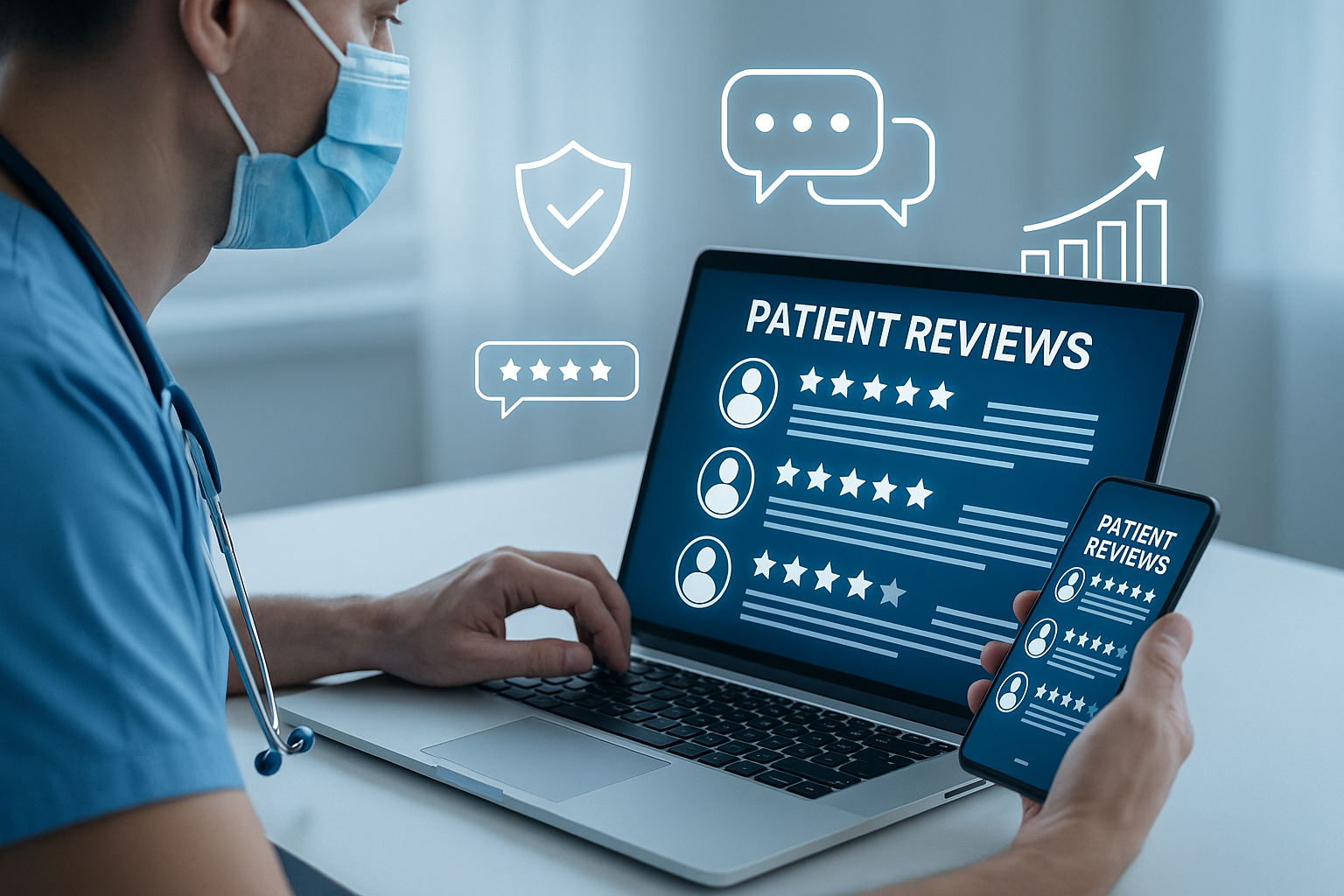Introduction
Digital health marketing executives face an unprecedented challenge in 2025: 88% of patients express concern about their health data privacy, yet only 23% trust healthcare organizations to protect their personal information effectively. For CMOs, VPs, and Marketing Directors in digital health and telehealth organizations, this trust gap represents both a critical business risk and a massive competitive opportunity.
While HIPAA compliance remains the regulatory baseline, leading digital health companies are discovering that meeting minimum requirements isn’t enough to differentiate in today’s privacy-conscious market. Patients increasingly choose healthcare providers and digital tools based on perceived data security—making privacy leadership a powerful marketing differentiator.
This comprehensive guide explores how digital health marketing leaders can transform data privacy from a compliance burden into a competitive advantage that drives patient acquisition, retention, and brand loyalty.
The New Privacy Landscape in Digital Health
Beyond Compliance: The Trust Economy
The digital health sector processed over 2.3 billion patient records in 2024, but data breaches affected 133 million Americans—a 156% increase from 2023. This surge in healthcare data incidents has fundamentally shifted patient expectations.
Deloitte’s 2025 Digital Health Consumer Survey reveals that 67% of patients now consider data privacy policies when selecting digital health tools—ranking it above cost and convenience factors. For telehealth platforms specifically, McKinsey research shows that privacy concerns are the primary barrier preventing 34% of patients from adopting virtual care services.
Regulatory Evolution and Market Pressures
While HIPAA established foundational privacy protections, new regulations are reshaping the landscape. The 21st Century Cures Act mandates interoperability standards that require enhanced data sharing protocols. State-level legislation, including California’s CCPA and Virginia’s CDPA, extends privacy rights beyond federal healthcare requirements.
Market implications for digital health marketing leaders:
- Competitive differentiation: Privacy-forward messaging resonates with 73% of healthcare consumers
- Partnership opportunities: Health systems increasingly require vendor risk assessments that exceed HIPAA minimums
- Investment attraction: Healthcare VCs now factor data governance into funding decisions
Building Trust Through Privacy-First Marketing
Transparency as a Marketing Asset
Leading digital health companies are transforming privacy policies from legal documents into marketing tools. Epic Systems’ MyChart platform demonstrates this approach by featuring clear, visual privacy explanations that patients can understand within 30 seconds.
Strategic transparency tactics:
- Privacy-first onboarding: Teladoc’s mobile app explains data use before account creation
- Interactive privacy centers: Allow patients to control data sharing preferences granularly
- Regular privacy updates: Proactive communication about security improvements builds ongoing trust
Data Minimization and Purpose Limitation
The principle of data minimization—collecting only necessary information—has become a powerful marketing message. Amwell’s privacy approach emphasizes collecting minimal patient data while maintaining care quality.
Implementation strategies:
- Audit data collection: Remove unnecessary form fields that create privacy friction
- Purpose-specific consent: Allow patients to consent to specific uses (research, marketing, care coordination)
- Retention policies: Clearly communicate how long data is stored and why
Advanced Privacy Technologies as Differentiators
Zero-Trust Architecture in Digital Health
Zero-trust security models verify every access request, regardless of location or user credentials. Doxy.me’s telehealth platform markets its zero-trust approach as a key differentiator, emphasizing that “no one, including our employees, can access patient conversations.”
Marketing messaging opportunities:
- “Never trust, always verify” positioning for enterprise clients
- End-to-end encryption as a patient-facing benefit
- Access logging and monitoring for compliance-conscious health systems
Federated Learning and Privacy-Preserving Analytics
Federated learning enables AI model training without centralizing patient data. Google’s healthcare AI initiatives demonstrate how privacy-preserving technologies can enhance both security and functionality.
Strategic applications:
- Decentralized AI training that keeps data local while improving algorithms
- Differential privacy for population health insights without individual exposure
- Homomorphic encryption for secure data analysis partnerships
Communicating Privacy Value to Stakeholders
Patient-Facing Privacy Communication
Effective privacy communication requires translating technical concepts into patient benefits. Apple Health’s privacy approach exemplifies clear, benefit-focused messaging: “Your health data stays on your device and is encrypted when it’s backed up to iCloud.”
Communication framework:
- What we collect: Specific, non-technical explanations
- Why we need it: Clear connection to patient benefits
- How we protect it: Security measures in accessible language
- Your control: Granular privacy settings and easy opt-out options
B2B Privacy Marketing for Health Systems
Health system decision-makers evaluate digital health vendors based on comprehensive risk assessments. Marketing materials must address IT security, legal compliance, and operational risk concerns.
B2B privacy value propositions:
- Reduced liability: Demonstrate how enhanced privacy protections minimize legal risk
- Regulatory readiness: Show preparedness for emerging privacy regulations
- Audit support: Provide documentation and reporting tools for compliance teams
- Insurance benefits: Some cyber insurance providers offer premium discounts for enhanced security measures
Measuring Privacy Trust and ROI
Key Performance Indicators for Privacy Marketing
Forrester’s Customer Trust Index identifies metrics that correlate with business outcomes in healthcare organizations.
Privacy trust metrics:
- Net Promoter Score (NPS) segments by privacy-conscious users
- Privacy policy engagement: Time spent reading and completion rates
- Consent conversion rates: Percentage of users who complete privacy onboarding
- Support ticket volume: Privacy-related inquiries as a percentage of total support requests
Business Impact Measurement
Leading digital health companies track privacy investment ROI through multiple channels:
Customer acquisition metrics:
- Privacy-driven conversions: Users who cite privacy as a selection factor
- Enterprise sales velocity: Faster B2B sales cycles due to privacy leadership
- Partnership opportunities: Joint ventures enabled by superior data governance
Customer retention indicators:
- Privacy-related churn: Customer departures due to privacy concerns
- Feature adoption: Usage of privacy-enhanced features
- Referral rates: Word-of-mouth marketing from privacy-satisfied customers
Regulatory Compliance as Competitive Advantage
Going Beyond HIPAA: Emerging Standards
While HIPAA establishes baseline requirements, leading digital health companies adopt additional frameworks:
Enhanced compliance frameworks:
- SOC 2 Type II: Annual audits of security controls demonstrate ongoing commitment
- HITRUST CSF: Healthcare-specific security framework that exceeds HIPAA requirements
- ISO 27001: International security management standards for global market access
- FedRAMP: Federal security standards for government healthcare contracts
State Privacy Law Compliance
State privacy legislation creates additional compliance requirements that can become marketing differentiators:
Strategic compliance positioning:
- California CCPA/CPRA: Consumer privacy rights that exceed healthcare norms
- Virginia CDPA: Data protection standards for multi-state operations
- Illinois BIPA: Biometric privacy protections for digital health tools using biometric data
Building a Privacy-First Marketing Strategy
Content Marketing for Privacy Leadership
Privacy-focused content marketing establishes thought leadership while addressing patient concerns. IBM’s healthcare privacy research provides authoritative data that can support content strategies.
High-value content formats:
- Privacy impact assessments: Transparent evaluations of new features or partnerships
- Security incident responses: Proactive communication about how you handle potential threats
- Regulatory update analysis: Expert commentary on evolving privacy requirements
- Patient education series: Helping patients understand their privacy rights and options
SEO Strategy for Privacy-Related Keywords
Digital health companies can capture high-intent search traffic through privacy-focused SEO:
Target keyword clusters:
- Primary: “HIPAA compliant telehealth,” “secure digital health platform,” “healthcare data privacy”
- Long-tail: “most secure telemedicine app,” “digital health privacy best practices,” “healthcare data protection software”
- Semantic: “patient data security,” “medical information protection,” “health tech privacy standards”
Future-Proofing Privacy Marketing
Emerging Technologies and Privacy Implications
Gartner’s 2025 Healthcare Technology Trends identify several technologies that will reshape privacy requirements:
Technology trend implications:
- Generative AI in healthcare: Privacy-preserving AI models that don’t expose patient data during training
- IoT medical devices: Device-level security for connected health monitoring
- Blockchain health records: Decentralized identity management for patient-controlled data sharing
Building Privacy-Resilient Marketing Infrastructure
Marketing technology stacks must evolve to support privacy-first strategies:
Infrastructure considerations:
- Customer data platforms: Privacy-compliant CDP implementations that support healthcare use cases
- Marketing automation: HIPAA-compliant email marketing and campaign management tools
- Analytics platforms: Healthcare-specific analytics that maintain patient privacy while providing marketing insights
Conclusion: Privacy as Your Competitive Moat
In 2025’s competitive digital health landscape, privacy leadership represents one of the most sustainable competitive advantages available to marketing executives. While competitors focus on feature parity and pricing wars, privacy-first companies build deeper patient relationships, accelerate enterprise sales, and create barriers to competitive entry.
The most successful digital health marketing strategies will integrate privacy considerations into every customer touchpoint—from initial awareness campaigns through long-term retention programs. This holistic approach transforms privacy from a compliance cost center into a revenue-generating marketing asset.
Ready to transform your privacy strategy into a competitive advantage?
Download our comprehensive “Privacy-First Marketing Playbook for Digital Health” to access detailed implementation frameworks, compliance checklists, and ROI measurement tools specifically designed for digital health marketing executives.
Download the Free Privacy Marketing Playbook →
Or schedule a discovery call with our digital health marketing specialists to explore how privacy leadership can accelerate your patient acquisition and retention goals.
Learn more about us
Sources and Additional Reading
- Accenture Digital Health Consumer Survey 2025
- HIMSS Healthcare Data Security Report
- Deloitte Digital Health Consumer Adoption Trends
- McKinsey Telehealth Analysis
- 21st Century Cures Act Implementation
- California Consumer Privacy Act Guidelines
- NIST Zero Trust Architecture Framework
- Google Health AI Privacy Approach
- Apple Health Privacy Framework
- Forrester Customer Trust Index
- AICPA SOC 2 Reporting Standards
- HITRUST Common Security Framework
- IBM Security Data Breach Report
- Gartner Healthcare Technology Trends




